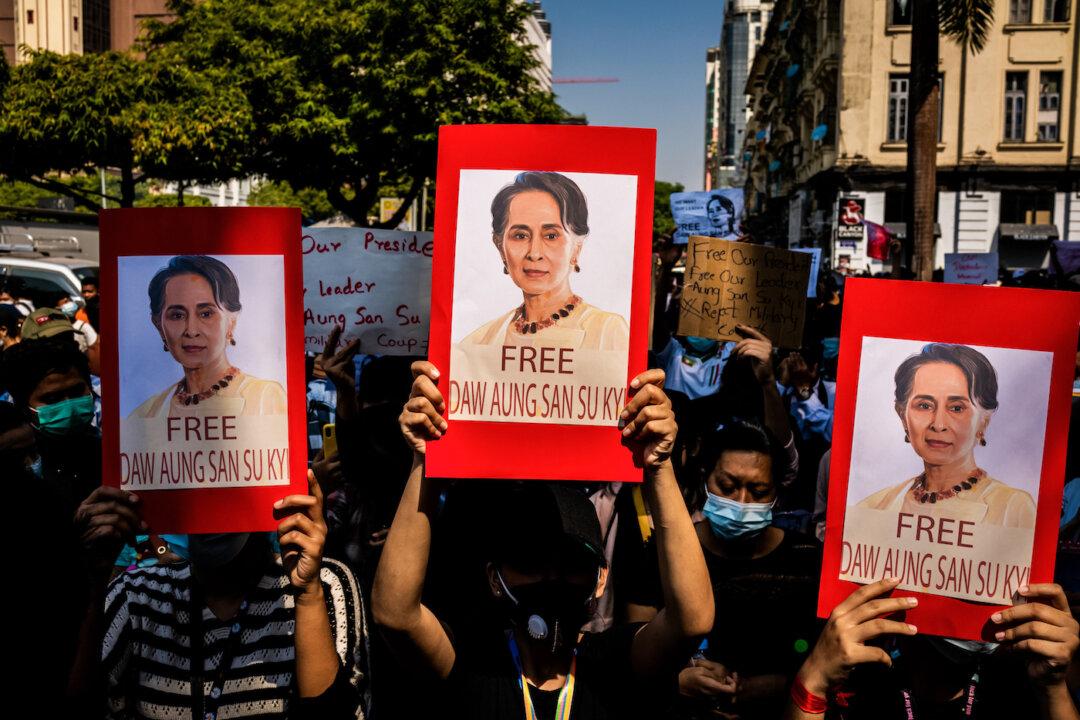The military junta in Burma said on March 28 that it had dissolved 40 political parties, including the party led by deposed leader Aung San Suu Kyi, ahead of an election the junta intends to hold later this year.
Suu Kyi’s National League for Democracy (NLD) party and the other 39 parties were dissolved because they failed to register as political parties by the deadline on March 28, the junta’s Ministry of Information said in a notice.





